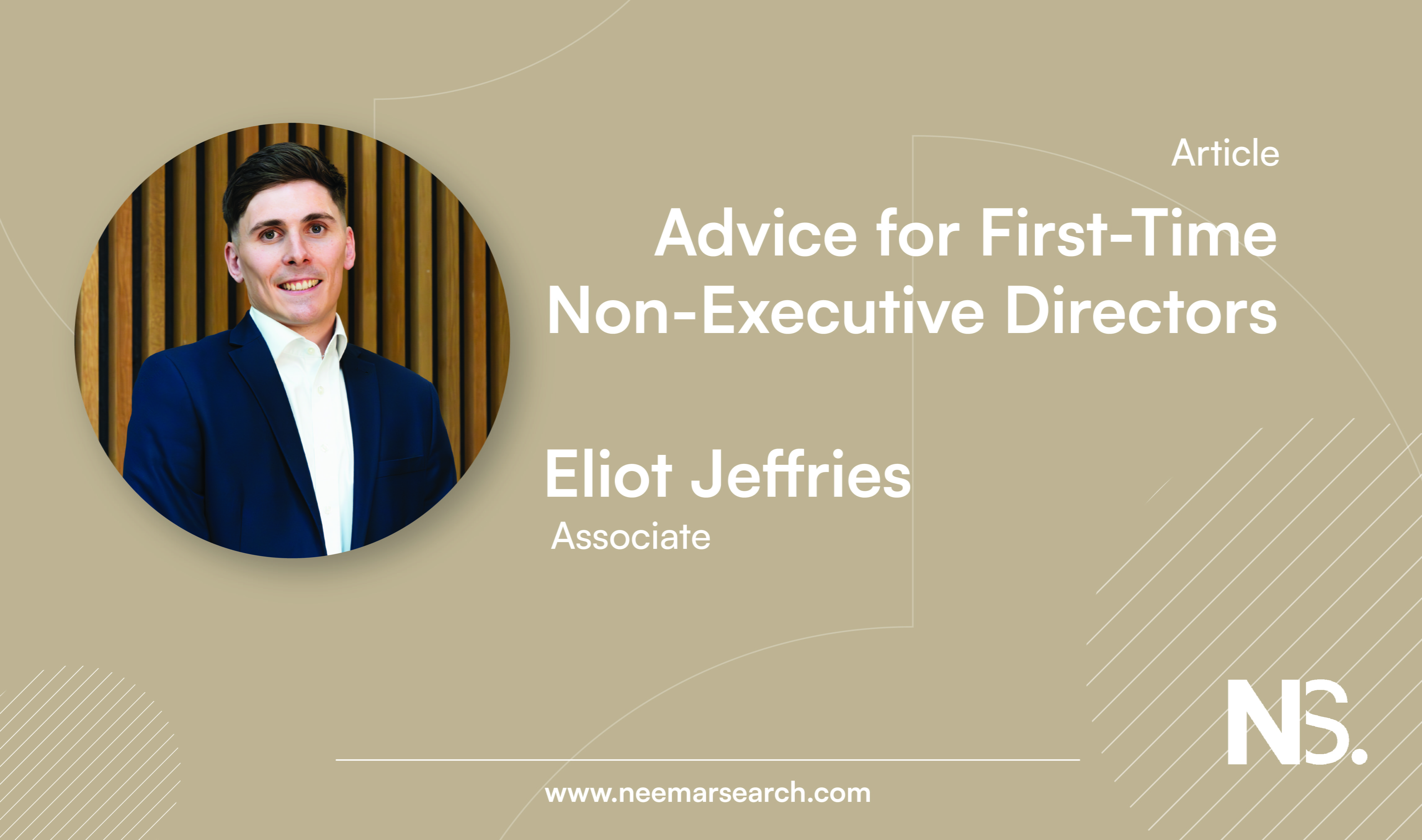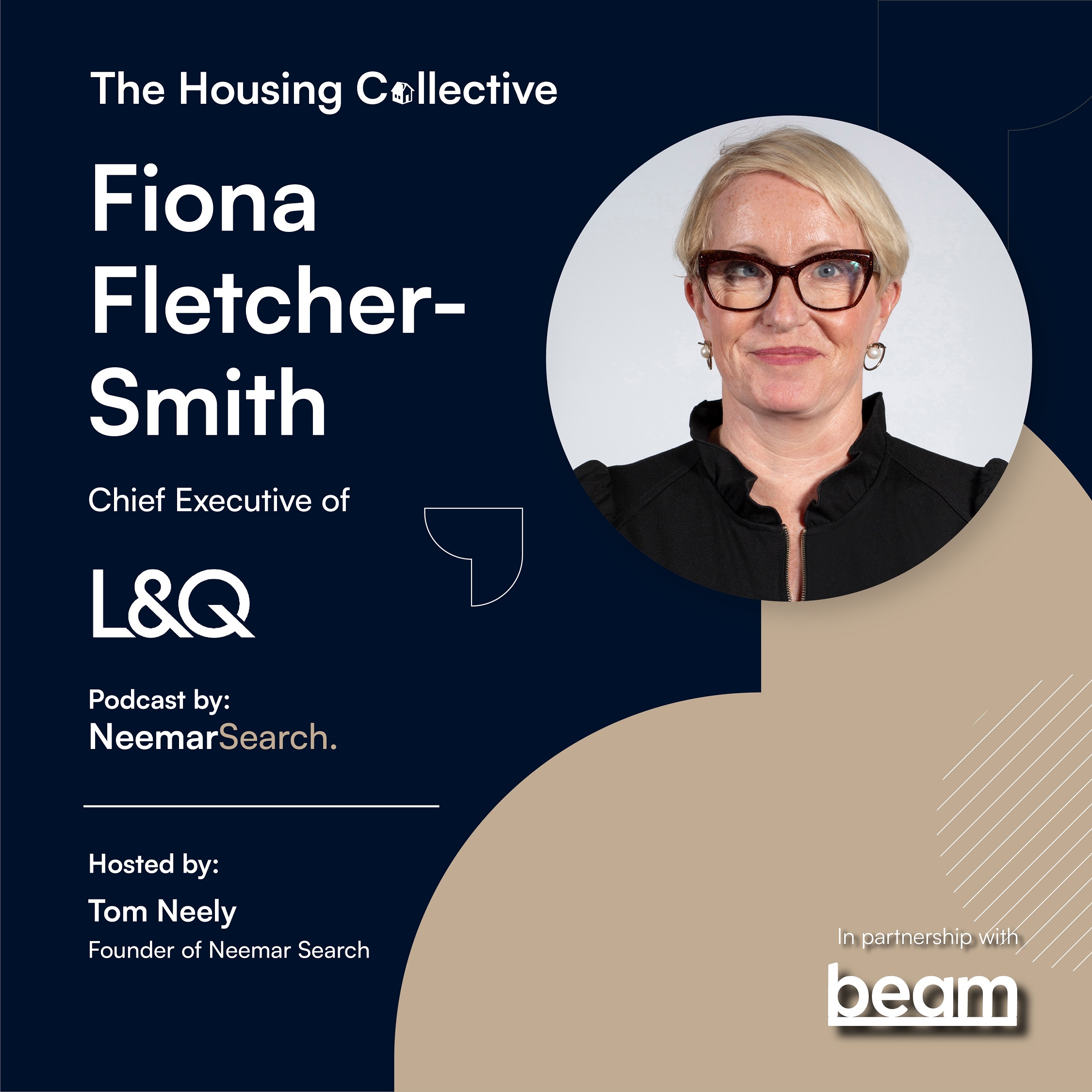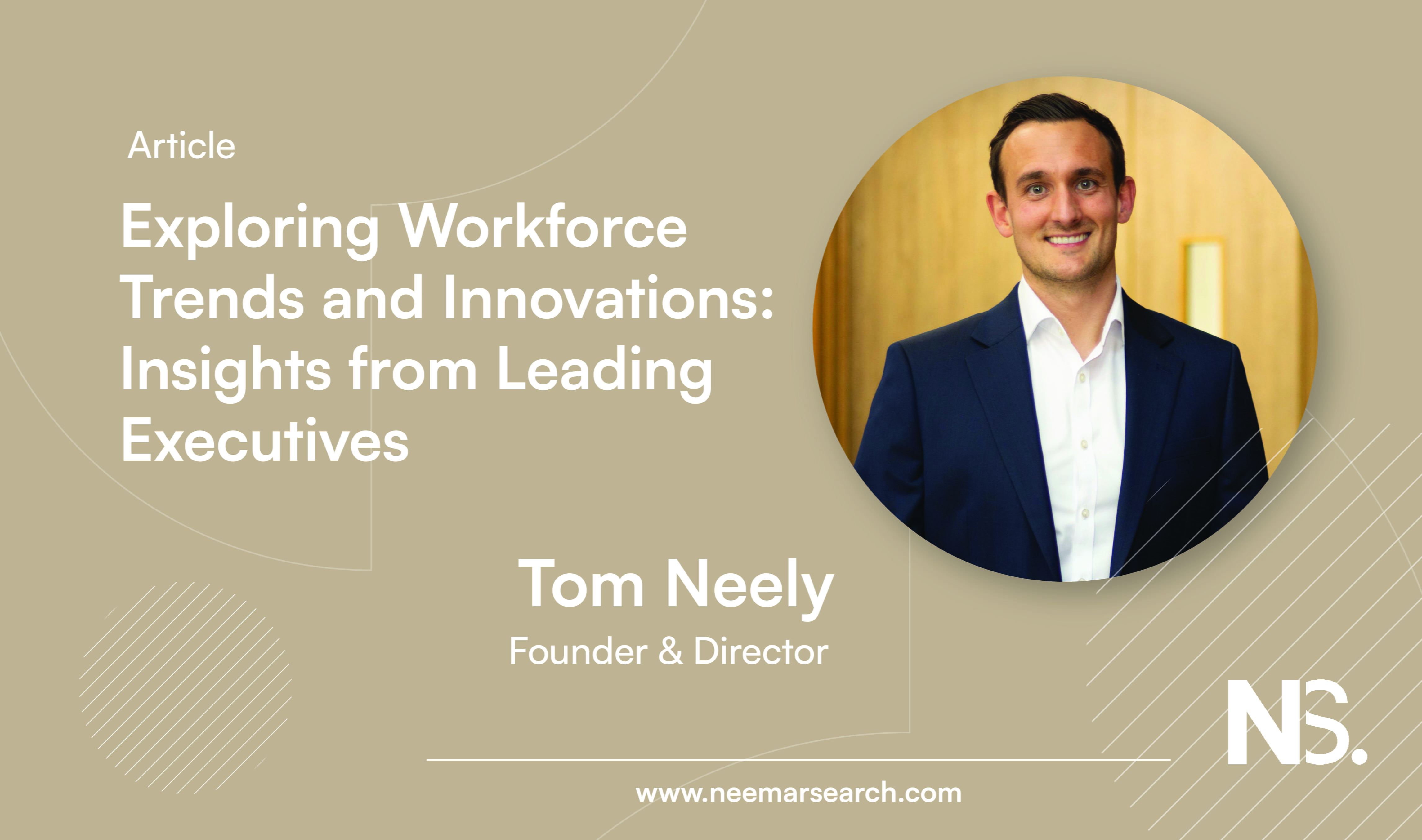
The Housing Collective: Defining Your Leadership Style
08 Aug, 20236 mins
In this second post exploring our recent Housing Collective podcast with Fiona Fletcher-Smith, L&Q Group Chief Executive Officer and the newly-appointed chair of London’s G15 organisation, we discuss how leaders can define their style—and learn the key leadership qualities in today’s world.
The second episode of our Housing Collective podcast, delivered in partnership with crowdfunding platform Beam, sees Neemar Search founder Tom Neely catching up with Fiona Fletcher-Smith, Chief Executive Officer for L&Q Group and newly-appointed chair of London’s G15 organisation, learning some valuable lessons about the key leadership qualities that can help C-suite employees to achieve success in 2023’s housing industry. Alongside this, we also explore the concept of radical candour that Fiona mentions in our podcast in greater detail, highlighting how organisations can develop a supportive and transparent culture in which all employees can thrive.
Key Leadership Qualities in Today’s Housing Sector
The facts are clear. 40% of global CEOs believe their organisation’s current model of operation will no longer be economically viable within a decade. Continuing the current course, as illustrated in PricewaterhouseCoopers’ report, is unlikely to lead to success within a given industry. These leaders recognise that it’s important to continually revisit business challenges to solve ever-more complex problems.
Whilst these issues are caused by several compounding factors—including evolving customer demand, changes in regulation, skills shortages, and technological disruption—and many solutions have been proposed, it’s important that organisations prepare for the coming years and reimagine their place in the world and the communities they serve. Strong leadership is the key to weathering this storm.
Fiona has brought skills to her leadership role that have helped her to continue to develop the culture of problem-solving that L&Q Group is known for. Her emphasis is on collaboration, resilience, and innovation—all crucial to organisations within the housing sector.
When it comes to collaboration, this is founded on the principles of transparency and of actively listening to the needs of your customers, residents, politicians, and local authorities—indeed, “...listening hard enough most of the time to be able to change your mind when you need to”, as Fiona mentions, is a leadership characteristic which can help you to pivot with the market during moments of economic uncertainty.
This ties into one of the most valuable leadership lessons Fiona gained when just a child:
“I’m the eldest of five kids, and I remember my dad telling me when I was nine, ‘People respond better if you ask them to do things rather than instruct them.’ That served me well!”
Of course, communication and collaboration are relatively straightforward skills that can be honed and assessed at the interview stage. But how can a business, or the board that is selecting its next leader, test for a capacity for resilience, particularly since it’s so difficult to quantify? In Fiona’s words:
“Resilience is something that I think has always been important, but I think I’m now far more conscious of the impact of people not being resilient… It’s a great question, and I don’t think we’re fully there yet in terms of being able to do that.”
When it comes to testing for this resilience in potential leaders, she highlights that one key area that interviewers can be on the lookout for is the narrative that a candidate forms around their failures. Having no failures to comment on is a red flag—since accepting these shortcomings and noting how they’ve coped with them is an ideal way for a leader to demonstrate how they’ve learned and grown, how their self-awareness has evolved, and whether they were able to motivate their teams through difficult situations. As Fiona highlights in our podcast:
“Calm seas don’t make for good sailors.”
When advising those CEOs looking to develop their capacity for innovation, Fiona is clear that the additional responsibilities that are offered through chair and non-executive positions—such as those she holds with G15 and the Centre for London—can be impactful ways to gain new skills and encounter exciting ideas, but she urges caution.
Leaders need to be realistic about the time constraints that their “day job” places on their ability to meet the requirements of positions such as chair, treasurer, or non-executive director. At the same time, it’s vital to ensure the backing and full support of the chair and board of the organisation you’re CEO of. She continues:
“G15 is a useful addition to a chief executive role in a London housing association because it opens doors for you, and you get to have regular conversations with government officials, for example, or with the Mayor of London’s office that complements your day job.”
For aspiring or current CEOs, it’s important to think about how these volunteer positions would support your present role, helping to ensure buy-in from the chair or board of directors when it comes to splitting your time in this way.
At the same time, it can be valuable for leaders to pursue a non-executive or chair position that is aligned with their professional passions. In addition to her chairing of the G15 organisation, Fiona also chairs the Trustees for the Centre for London, a think tank committed to driving innovation and development within the capital. In her own words:
“I’m really interested in the economics of a big city and how it works, and I’m interested in equity and poverty in places like London—which is immense, despite how it might seem to the outside world.”
Having a personal passion for the organisation you’re supporting is vital for these typically unremunerated roles. This allows you to not only remain highly motivated but also to understand how the connections you’re making and the knowledge you’re gaining could be applied to the business challenges you face in the day-to-day responsibilities of your CEO role.
At L&Q Group, this has meant that no member of staff is encouraged to “stay in their lane”. Ideas from all employees are welcomed, particularly from senior and executive staff. Organisations need leaders willing to recognise that failure is a regular part of business and that coping with failure and sharing the lessons earned from your missteps are vital leadership qualities.
Developing A Culture of Radical Candour
So, the question is, how can we encourage our employees and executive teams to offer their worries about the projects we embark on or to open up about their own strengths and weaknesses?
The answer could be found in the principle of “radical candour”. Those of you who tuned in to our first podcast with Sarah Jones, Anchor CEO, will remember that she also approaches leadership from this angle, encouraging her staff to be as open as possible and facilitate an environment of continuous improvement—something which Fiona also aims to incorporate into her leadership toolkit. As she notes, the method certainly comes with benefits for the executive leadership team:
“When you come to some really difficult discussions and difficult decisions… for example, the budget constraints this year… you’re doing it from a point of view of understanding each other.”
Executive teams need to receive and offer feedback whilst taking the time to work around complex subjects that will impact business operations. L&Q Group executive meetings will always start with a check-in, where colleagues will get to know each other’s distractions and worries, giving Fiona an insight into how her team is operating.
Fiona’s recommendation of Matthew Syed’s Black Box Thinking, a book which imparted an important leadership lesson to her, resonates strongly here. The work is concerned with the greatest impediment to success in just about any project: failure to learn from mistakes, especially the most disastrous ones. By breaking our biggest challenges down into their constituent parts and rigorously evaluating what worked—and what didn’t—we can create a housing sector that is able to take advantage of the lessons that our failures hold for us. As Syed notes in his book:
“Only by redefining failure will we unleash progress, creativity, and resilience.”
This act of taking time out—away from the regular day-to-day agenda of the executive team’s meetings—allows Fiona’s colleagues to develop as individuals and as a team, so all employees can be aligned on the responsibilities they’re involved in. Ensuring all executives develop their self-awareness, as well as an awareness of the worries, wins, and personalities of leaders in other departments.
When it comes to the often complex nature of mergers and acquisitions, this measured advice comes in handy:
“Just take a breath. Don’t rush into anything… you have to understand your motivation—why are you doing this?”
The lessons that radical candour can teach meant that L&Q Group’s acquisition of Trafford Housing Trust succeeded, expanding the houses the organisation manages and maintains by over 10,000 properties. It’s vital that executive teams are very clear with each other—whether it’s a merger or an acquisition—so as to avoid major issues, as well as the minor, niggly details of internal processes and systems that can act as an impediment to the deal.
Effective leadership in the housing sector requires a combination of three key qualities: collaboration, resilience, and innovation. Leaders must prioritise transparency, actively listen to their internal stakeholders, and be willing to adapt their strategies in response to changing market conditions. Moreover, resilience is crucial in navigating the challenges of the industry, and leaders must be ready to embrace failures as opportunities for growth and learning.
Additionally, pursuing non-executive or chair positions aligned with career ambitions or personal passions can bring valuable insights and connections to those in the CEO role.
Creating a culture of radical candour fosters open communication and continuous improvement within executive teams, enabling them to make informed decisions and successfully navigate complex situations, such as mergers and acquisitions.
Ultimately, strong leadership is essential in shaping the future of the housing sector and ensuring organisations thrive in the face of the challenges of the modern business environment.
Specialist Housing Executive Search Firm
Whether you’re a candidate making a career change or you’re a business leader searching for a seasoned expert within the housing industry, Neemar Search is here to support you.
If you’re interested in learning more about the challenges facing the housing sector or you’re searching for more leadership lessons, join the Housing Collective Newsletter for the latest expert insights.
We’re dedicated to partnering with leading not-for-profit housing associations, local authorities, arms-length management organisations (ALMOS), and for-profit enterprises to drive change within the industry through executive staffing solutions. Whether you require recruitment expertise within corporate or customer services, asset management, development, or finance, we can help you to make an impact. Contact us to learn more about our specialist hiring services within the housing industry.


